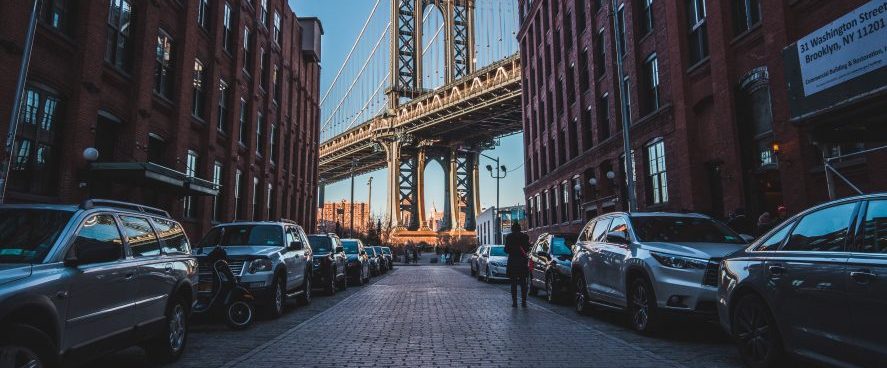“Many in our profession never hear children say, ‘When I grow up, I want to be a code enforcement officer!’ Most of the population is unaware that this important profession exists. Code enforcement is a vital tool for communities that makes sure neighborhoods are properly maintained and residents have a safe place to live.” – Peter Roque Code enforcement expert
What do you need to know about code enforcement?
This is a great question, and one that can not be easily answered in a simple sentence. By the same token, the description, responsibilities and duties of the code enforcement officers vary dramatically by jurisdiction and municipality. Fortunately, I’m familiar with code enforcement because many non-emergency customer service 311 centers handle these calls. This reporter’s ride-along with the code compliance department in Sacramento, CA. clearly illustrates a typical day.
Generally speaking, a code enforcement officer is responsible for evaluating, educating and, of course enforcing local codes. This can be in the form of answering questions, issuing warnings or giving actual citations for code violations. Even though a part of the job does result in violations, code enforcement officers’ main objective is to ensure an attractive, lawful and safe community.
Here are a few common code enforcement areas of interest: unsightly lawns, excess signage, nuisance or neglected animals, illegal dumping and parking. Additionally, their duties can include business permits, zoning regulations, construction planning and condemning unsafe buildings. Between enforcing ordinances, rules and regulations our cities can not run efficiently without code enforcement. The American Association of Code Enforcement’s (AACE) three-minute video provides a great overview.
As much as I would like to take a stab at writing a blog about code enforcement, it is too complex to accomplish without assistance. For this reason, I enlisted assistance from an expert.
Meet the expert
Peter Roque, who is as passionate as I am about local government, if not more so, is the perfect choice! For one thing, he is a code enforcement evangelist whose work both regionally and nationally is notable. Coupled with tirelessly spreading the “gospel” in the city of Garden Grove, CA. as a code enforcement employee, he is also an instructor at Santiago College and he has also “preached the word” at Irvine Valley College. So, in order to properly highlight code enforcement, I invited this subject matter expert to share the “ins and outs” about this local government division. He is also very involved in numerous associations such as: California Association of Code Enforcement (CACEO) and the American Association of Code Enforcement (AACE).
Meet Peter Roque
For good measure, I asked Peter Roque to pen a few words about his daily work.
Code enforcement is a very tough profession. The profession itself does not get as much recognition as it should for the amount of difference we make in the community. Code enforcement is no longer just about property maintenance. It is now more about regulating nuisances that hinder a community. As new laws emerge and new problems appear, there has to be a group that addresses these issues.
Unlike public safety personnel like firefighters or law enforcement officers, a code enforcement officer’s role can vary from jurisdiction to jurisdiction. In one jurisdiction, a code enforcement officer may enforce one or all types of violations. These can include: parking, animal, zoning, health, housing, property maintenance, business licensing, stormwater issues, building codes or other types of enforceable codes.
Generally, code enforcement officers are quasi law enforcement personnel who work for local or county government departments. We enforce their jurisdiction ‘s established code requirements, ordinances, and zoning laws, as well as any adopted codes such as state codes or model codes. Code enforcement officers frequently receive complaints from citizens, other city departments and outside agencies. We investigate those complaints and if they confirm violations, then we will work with property owners to ensure that they comply with local regulations. Voluntary compliance is always the main goal for a code enforcement officer. An effective officer uses their words and emotional intelligence to achieve this goal.
How are things in your profession changing?
As many laws are getting to be criminal, laws are being more relaxed. Cities and law enforcement agencies turn to code enforcement to handle these types of issues. For example, massage parlor regulation. Normally, prostitution is considered a crime; however, it is hard to prove and hard to enforce in many of these establishments. Therefore, code enforcement uses licensing, zoning, building regulations and professional standard ordinances to address or even shut down these illicit establishments.
Furthermore, code enforcement always has to come up with new solutions to address new concerns, and we have to coordinate with different departments in a jurisdiction. Examples include, but are not limited to, public works, licensing, fire departments, building, finance, mayoral executive offices, city attorney, engineering, police or planning. There is no unique standard where code enforcement belongs, because we work with all.
This is another example: when people decide to place things in the public right-of-way like scooters or illegal vendors, this activity may hinder accessibility to the general public. Officers may deal with licensing for unpermitted occupancy uses. Planning for conditional use may result in permit violations, or working with the mayor’s executive office to handle complex or sometimes political issues. There are so many examples that this dialogue can go on and on
Because you respond to complaints and give violations I suspect this can be dangerous. Also, I am seeing more discussions regarding stress and PSTD in local government; is this an issue for code enforcement?
Yes, the experience of seeing children being carried out from a garage where there is a fatality due to a garage conversion catching fire is one example. I’ve had to call child protective services to deal with neglected children, because the parents were too high on drugs to care for them. During the course of our duties, we also witness crimes that happen to our general public. We have to coordinate with police, which includes traffic accidents, physical attacks, deaths and deplorable conditions. As I said before, code enforcement is not an easy job and it is not for the faint-hearted. Unfortunately, there are minimal outlets for code enforcement officers to go to about these issues.
In June 2016, together with my colleague Page White, we created the California Association of Code Enforcement Officers Officer Safety Committee to help code enforcement deal with traumatic issues. We conducted an extensive report and collected information and we found that many officers had been assaulted, threatened or even attacked. This type of activity can cause an officer to fear for their safety and can create issues when dealing with normal working conditions. Physical trauma and psychological trauma are normal experiences for many code enforcement officers and this can lead to PTSD.
In creating that committee, our goal is to help officers find resources, create legislation and develop much-needed training for those who need it. Code enforcement is a tough job, and it is not law enforcement. We do not carry guns, vests, or other weapons that may cause bodily harm or injury to others; our weapon is our strength and our ability to de-escalate situations.
The danger code enforcement officers face is illustrated in this sad video in West Valley City, UT. Sadly, a code enforcement officer was shot and killed for simply doing their job.
In conclusion, when voluntary compliance is not achievable, code officers will by law use due process to achieve compliance with such tools as written warnings, courtesy notices, administrative citations, criminal citations, public hearings or abatements. But, their end game and mission is to use emotional intelligence and compassion to find a balance working with the community while enforcing local code.
Again, thank you, Peter Roque, for taking the time to educate me and assisting with this informative and important blog. It is an honor to showcase the importance of the role of code enforcement in local government!
Janice Quintana is a GovLoop Featured Contributor. A government nerd, customer service practitioner and 311 pioneer, she has worked in local government as the Director of 311 in three different municipalities. She is fascinated with innovation, technology, data, service delivery and community engagement. When Janice is not following local government rock stars or trends she enjoys her status as a tennis enthusiast and travels the globe to watch a good match. She currently lives in Charlotte, NC with her two chihuahuas. You can read her posts here.





Leave a Reply
You must be logged in to post a comment.